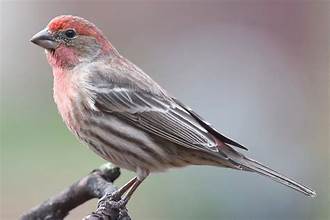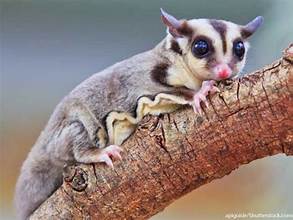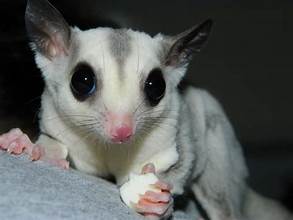The Fantastic World of the Finch They are known for their vibrant colors and cheerful songs and are relatively easy to care for, making them popular in the avian community.
Finch Diet: What Do Finches Eat?
A well-balanced diet is needed for the health and longevity of your finch. Here are the main components of a finch’s diet:
Seed Mixes:
Finches primarily eat seeds. A high-quality finch seed mix with a variety of seeds such as millet, canary seed, and niger seed. This mix provides the essential nutrients finches need.
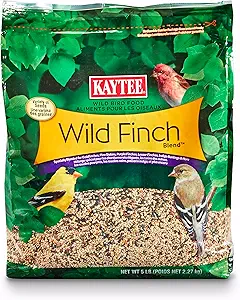
Fresh Fruits and Vegetables:
Supplement your finch’s diet with vegetables and fruits like apples, carrots, spinach, and broccoli. These provide vitamins and minerals that seeds alone may not offer.
Protein Sources:
Finches may require additional protein during breeding or molting seasons. Offer them hard-boiled eggs, mealworms, or special protein-rich foods designed for birds.
Calcium Supplements:
Cuttlefish bone or mineral blocks should be put into the cage to ensure your finch gets enough calcium, which is essential for solid bones and eggshell production in females.
Clean Water:
Provide fresh, clean water for drinking every day. Ensure that water dishes are removed and washed regularly to prevent bacterial growth.
Finch Habitat: Creating the Perfect Home
Finches are active birds that need ample space to fly and explore. Here’s what you need to consider when setting up a habitat for your finch:
Cage Size:
A spacious cage is essential. A cage that is 18 inches wide, 24 inches high, and 18 inches deep is perfect for a single finch. If you have more than one finch, increase the cage size accordingly. Horizontal space is vital, as finches prefer flying side to side.
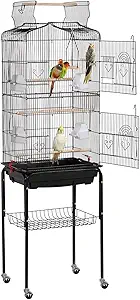
Bar Spacing:
The bar spacing should be 0.5 inches to prevent your finch from escaping or getting stuck.
Perches and Accessories:
Provide several perches of varying sizes and materials to keep feet healthy. Natural wood perches are ideal. Also, include swings, ladders, and toys to keep them entertained.
Cage Location:
Keep the cage well-lit, but avoid direct sunlight and drafts. Finches thrive in a stable environment with moderate temperatures.
Bedding and Cleaning:
Line the cage floor with paper towels or bird-safe bedding. Clean the cage weekly to maintain hygiene and prevent illness.
Exercise: Keeping Your Finch Active
Finches are naturally energetic birds that need plenty of exercise to stay healthy.
Flying Space:
Ensure your finch has enough space to fly within the cage. The more space, the better.
Interactive Toys:
Finches enjoy mirrors, bells, and swings. Rotate toys regularly to keep them engaged.
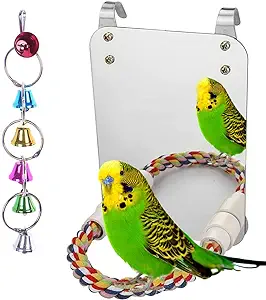
Out-of-Cage Time:
Allow your finch some supervised out-of-cage flying time in a safe, enclosed room.
Health Issues: What to Watch For
Keeping your finch healthy involves regular observation and preventive care:
Common Health Issues:
Finches are prone to respiratory infections, mite infestations, and egg binding in females. Signs of illness include lethargy, fluffed-up feathers, sneezing, or difficulty breathing.
Regular Vet Visits:
Schedule regular check-ups with an avian veterinarian. Early detection of health problems can make a big difference.
Dietary Monitoring:
Ensure your finch is eating a balanced diet. Malnutrition can lead to various health issues.
Cleanliness:
Keep the cage and all accessories clean to prevent the spread of disease.
Breeding Finches: What You Need to Know
If you’re interested in breeding finches, there are additional considerations:
Breeding Pairs:
Only breed healthy, mature birds. Pair them carefully, considering their compatibility.
Nesting:
Provide a suitable nesting box and materials like soft grass or shredded paper. Ensure a calm environment during the breeding season.
Chick Care:
Be prepared to care for chicks, which may include providing extra food and ensuring they are warm and safe.
Conclusion
Finches are charming, low-maintenance pets that bring joy with their lively behavior and melodic songs. You can ensure your finch lives a long, happy life by providing a proper diet, spacious habitat, regular exercise, and attentive health care. Finches are a delightful choice whether you’re a first-time bird owner or adding to your avian family.

